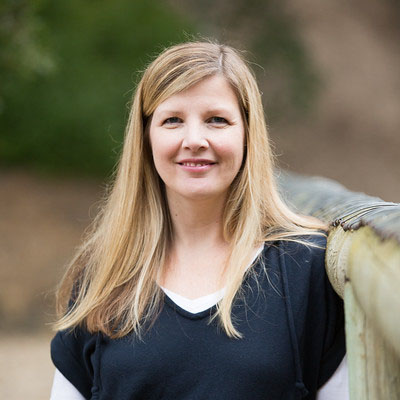My horse was stuck in a corner and I was getting frustrated. I was trying to move him through some obstacles in the arena, but we couldn’t get anything done because I couldn’t even get the horse out of that corner. Nothing I did seemed to be working. Sensing my frustration, my coach called a time out and invited me over to talk.
“What’s happening?” she asked.
“My horse won’t move.”
“Does this remind you of any other situation in your life?”
“This is exactly what happens with my son.” I replied.
Just being asked what the situation reminded me of made me stop and think. A similar struggle with my 7-year-old son was also frustrating. He didn’t want to do what I asked him to do and I lived in a state of underlying fear that I would ask and he wouldn’t do it and then what? I hated that feeling.

“Why do you think this horse won’t move?” my coach asked.
“He just doesn’t want to do what I ask.” To me, that felt very clear, very true. The horse just didn’t want to listen and neither did my son. My coach continued to ask me questions.
“Can you absolutely know that the horse doesn’t want to do what you want him to do?”
I thought for a minute. I couldn’t know for sure, but I also couldn’t think of anything else it could be. That defeated feeling came over my whole body. My jaw tightened; my stomach felt slightly nauseated. I wasn’t breathing.
“What else could it be?” she asked. I didn’t know. I just stood there. My mind searched for answers and came up blank. It couldn’t be anything else. “Can I throw out some things I’m seeing?” my coach asked.
“Sure.” I began to breathe a little bit.
“I’m noticing the horse is looking at you with his ears locked on you. He seems to me to be curious and trying to understand what you are asking.” I looked at the horse. I could see him looking at me and I could see that he might be curious, though I wasn’t sure. I didn’t know what a curious horse looked like, really.
“I guess that could be true.” I eventually answered.
“Would you like to try again?” my coach asked.
I did try again and I looked at the horse through a different lens this time. What if he just doesn’t know what I’m asking for? I tried a few different things and this time, the horse moved out of the corner and through one of the nearby obstacles.
“How might this apply back to the situation with your son?” my coach asked me. I could feel my body tense up at the idea that I might be wrong about my son. But I took a few deep breaths and answered her anyway.
“I guess it’s possible he doesn’t know what I want, or that I’m not being very clear.” I could feel my body start to relax at that idea. It felt so much better than the idea that he just didn’t want to listen. The horse walked over to me and put his mouth up by the back of my neck. It tickled. I wondered if this could be true, what the horse seemed to be saying to me. I looked at him and felt badly about the possibility that I’d confused him and then blamed him for being confused. Could this be true for my son as well?
I went home from that session with the horse and tried some different things with my son. I knew he could understand my words, but what if I was confusing him with my energy or my intention? I started to sing songs or recite short poems while my kids got ready for school in the morning. They got ready much more quickly. I tried walking cheerfully out the door to get in the car, inviting the kids to follow along behind me instead of trying to push them out the door with my words about hurrying. They followed happily. I played music on the drive and told them jokes along the way and we laughed and smiled. The more I did all this, the easier it became.
What if my son had been confused by my energy about going to school? What if I had been unconsciously communicating that something was wrong about the mornings? We were always running late and I was always stressed. The more stressed I became, the more he dragged his feet getting ready and getting in the car. Stress and movement didn’t seem to go well together. I remembered my tight jaw and my upset stomach, holding my breath, hoping it would happen the way I wanted it to with the horse. What if all that tension in me told my son to hold still and made him feel stuck in a corner as well?
That session with the horse was over 10 years ago, but I’ve never forgotten it. I have since learned from horses that if you want to create easy movement and forward momentum, you have to embody easy movement and forward momentum. You have to be the energy you want to see in the world, and in your kids.
When I coach my Equus clients, I try to remember this same thing. How might any tension in my own body be influencing what is happening for my client right now? How might my own need to control the outcome of the session be shutting them down and keeping them stuck? In my best moments, I remember to breathe, relax my own body, and trust that my client will learn what they need to learn from this experience. And, I remember to trust that my co-facilitator, the horse, will give them the feedback in that moment, just as the horse stuck in the corner gave me the feedback that I needed about my son.